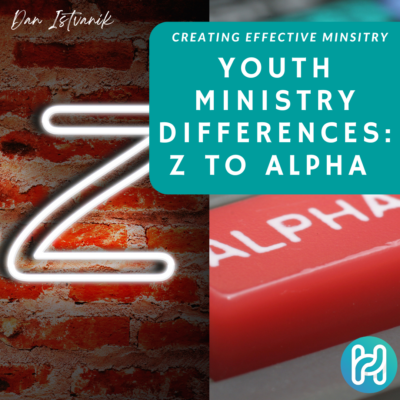Youth Ministry Thoughts
Middle School Student Discipleship
Middle School Student Discipleship… You might think I’m joking or that this is a huge oxymoron. Either way, on behalf of middle school students everywhere, I’d like to ask you to pause and hear me out.
I don’t remember much about the church from when I was in 7th grade. But I do remember Mrs. Burgess and our Sunday school class. Every week she was faithfully there for us. She always seemed genuinely happy to see us. And she believed that we could rise to challenges. In fact, she’s the first person who challenged me to memorize Scripture. And I still no Isaiah 40:31 to this day because of that 7th-grade challenge. There was something about her love for Jesus and her genuine interest in me and my peers that kept me coming back week after week.
The church I’m in now doesn’t have “Sunday school,” but we do have small groups. And depending on where you go in the country and what type of church you are at, you’ll probably find one or the other. And hopefully, you’ll find a version of Mrs. Burgess ready for the middle schoolers to show up and have their lives changed together.
- If we truly believe that everyone should know and follow Jesus…
- If we truly believe this process doesn’t start at graduation but begins whenever a person begins forming and owning their faith…
- And if we truly believe what we know about adolescent brain development and the wonderful time of life known as “middle school” or “junior high”….
Then one of the best ways to develop discipleship for middle schoolers is a small group.
In his book, Controlled Chaos, Kurt Johnston says: “Parents + Caring Adult Follower of Jesus + Junior Higher = Good Stuff.” That is so true. We know that parents spend more time with students than we ever will as paid or volunteer youth workers. But we also know that, especially during the middle school or junior high years, they welcome anyone who truly cares about their kid to come alongside them for a partnership to help raise that child.
As a parent myself with my own kids’ middle school years just behind me in the rear-view mirror, I am so thankful for the adults who have and do serve as their Small Group Leaders. Those adults can say the exact same thing I say to them at home, but it comes out as “genius” coming from someone else. As I’m raising my own three teens/young adults to know and follow Jesus, I am so thankful to have these partners in the process through the church.
In the wonderful e-Book, Raise the Flag: Middle School Matters More Than You Think, Scott Rubin shared a quote from a student in grade eight in his church: “I love having a small group leader. Before this, I just had to talk things out with myself.” Scott comments on this and says, “For sixth, seventh, and eighth graders, it seems like no one’s really interested in their story.” This is HUGE! If a student is going to be interested in the story of Jesus and how it connects to their life, they will most likely listen if they know someone is genuinely interested in their story and really likes them. This is the role of the Small Group Leader!
If you want to read what I still believe is the handbook for small groups in youth ministry, then you should check out Lead Small by Reggie Joiner and Tom Shefchunas. One of their key lines in the book is: “What we do for a few will always have more potential than what we do for many.” And although I believe they are speaking about those of us in leadership positions, I believe they would agree with me that what we do involves the leader and the other students in the group.
Think about Jesus’ disciples. None of the disciples spoke out of turn or said some of the crazy things like Peter did. But . . . none of them walked on water or had the responsibility of leading the church forward after the resurrection like Peter did. And if we look back at that group of guys, I believe we can see versions of the students in our middle school small groups through their words and actions, mistakes and successes, frgrouptions and celebrations, fears and hopes. There was something special about that group doing life together with Jesus for three years that changed the world.
Now, let’s walk into the life of a middle schooler today. The isolation they may face due to quarantining, virtual school, and the onligroupurch is powerful. But the connection they can develop with a Small Group Leader and a handful of peers can breathe life into their context. In fact, some of the ministries that have weathered all of these changes the best over the lasgroupple of years are those who put more responsibility and opportunities into the hands of their Small Group Leaders and their groups for youth ministry.
Think about it. A student may have “screen fatigue” from being on Zoom or some related platform for school. But you tell them that a group of their friends and their small group Leader want to have a scavenger hunt tonight, and they are logged in and ready to go! A middle schooler may not want to chat much with Mom or Dad about their day, but the minute a friend wants to Facetime or message them, they are all about sharing what’s going on in their life. And Parents can encourage their middle schoolers to get to know Jesus better by reading their Bible. But when the Small Group Leader issues the challenge to read the book of John and the whole group is messaging each other for accountability and encouragement . . . it’s a whole different situation!
An anonymous author from Group’s youthministry.com posted this about middle school small groups:
“Small groups give students a place to belong. They help a larger youth ministry feel small. Small groups build community. They create a safe place for questions to be asked and struggles to be shared. Small groups build and strengthen friendshgroupThey allow students to be known. Small groups help students build relationships with caring adults. They create incredible memorgroup’sall groups allow students to laugh when they want to laugh and cry when they need to cry. They give ownership to adult volunteers.”
In short, small groups can be the backbone of a healthy youth ministry and the environment in which the most life-change happens. Small groups are a lot of work, but they are worth the effort.
I agree 100% with their statement. Following Jesus isn’t about perfection. It’s about persistence. Peter didn’t give up when Jesus called him “Satan.” And he didn’t quit after he denied over and over again that he even knew Jesus. Through Jesus’ love and forgiveness, and the power of the Holy Spirit, Peter helped birth the church!
Middle schoolers will remind us by their actions and words when they call us out that no one is 100% like Jesus. But they’ll also remind us that we are all on that journey, taking one step at a time. I don’t know about you, but I would much rather be on that journey with a bunch of friends and a leader to help guide us than try to figure it out on my own. And in the life of a middle schooler, that is truly one thousand times over.
As I was reading through Mark Moore’s Quest 52, I was challenged with this question: “What verse would you like God to write about your contribution to the story of salvation?” My answer is: “Mike helped people get to know and follow Jesus.” And if that’s a simple definition of discipleship then no matter what shape yours takes, the best way for this to happen with middle schoolers is in small groups with a caring, adult follower of Jesus, a few peers, and in partnership with parents.
And then we’ll accomplish what Paul described in his letter to the Ephesians: “growing in every way more and more like Christ.”
 Mike Shelely serves as the Middle School Pastor overseeing ministry for 10-14-year-olds or 5th-8th grades at Mount Pleasant Christian Church on the south side of Indianapolis, Indiana. He’s been in this role for over 14 years and has served in various roles in youth ministry for over 25 years. He’d love for you to check out his new youth ministry YouTube channel, where you can also connect with him through links to various social media platforms:YouTube.com/mikesheley
Mike Shelely serves as the Middle School Pastor overseeing ministry for 10-14-year-olds or 5th-8th grades at Mount Pleasant Christian Church on the south side of Indianapolis, Indiana. He’s been in this role for over 14 years and has served in various roles in youth ministry for over 25 years. He’d love for you to check out his new youth ministry YouTube channel, where you can also connect with him through links to various social media platforms:YouTube.com/mikesheley




